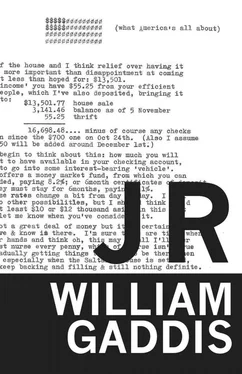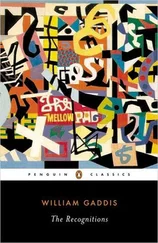— We even had to sew a button on for him. Where do you suppose that picture is, Julia? The one on the song sheet. It was when she opened at the New Montauk Theater…
— It must be over in James’ studio with everything else.
— With everything else, yes. It’s a good thing he never got loose over there. When he started to pry into James’ income tax returns, asking if James took Edward as an exemption…
— There’s no reason he shouldn’t. I’ve heard James say myself that as long as Edward is a fulltime student…
— That Bryce boy, the one they called the young planter, he was still in high school at the age of twenty-nine.
— That was quite a different story, Anne.
— Wasn’t Reuben an orphan? Stella said abruptly over them.
— No. Certainly not.
— I thought I’d heard my father say…
— Just because James found him in an orphanage. The boy’s mother had died and his father couldn’t look after him and put him in an orphanage where he’d get decent care. That’s where James found him, giving music lessons. The Masons did charity work, you know, and James was giving lessons in a Jewish orphanage. He thought the boy had talent and, well, that it should be developed.
— But he brought him home, didn’t he?
— James brought him home to teach, simply that. It’s… it was all so many years ago and I’m sure the only reason your Mister Cohen brought it up was to try to stir up those old stories about James and your father. About James and Thomas not getting on, simply because of… of what’s at stake.
And Stella’s turn and movement from them in her gray took a melancholy dimension from the fading streaks of the fall sun mottling the glass. — What’s that, she said.
— Why, the business. After all.
— After all, it was James who helped him get started. When Thomas first talked about music publishing…
— I’d hardly call it music publishing, Anne. When Thomas first talked about making piano rolls, James said he thought that playing reed instruments all those years had loosened something in Thomas’ head.
— Nevertheless I would not have imagined there was still so much money in piano rolls, but your Mister Cohen says it’s doing very well. I thought people had radios and things today. It’s not as though James has no stake in it, after all.
— But he still owns his stock, said Stella from the pictures. — And you both do too?
— You certainly wouldn’t know it from the dividends.
— Not that it’s all just a matter of money.
— Then what is it…? What light there was was gone, pocketed above, leaving Stella in her turn matching her stare to those fallen to the empty floor and left there, as though something only a moment before had been there, moving, and fled.
— Why, why simply I think James simply felt that Thomas took… took certain advantages. Musician friends of his, of James, they showed up here on concert tours and James had scarcely introduced them when he found that Thomas had them out there in Astoria cutting piano rolls.
— Who was that, Anne?
— Well, Saint-Saëns was one. When he was here touring…
— I think James thought that Saint-Saëns was rather silly, with his theosophy and all the rest of it.
— I think James really liked Saint-Saëns, Julia. It was Saint-Saëns’ music that James thought was rather silly, he thought that it was trite. Yes, it must have been the music, because it wasn’t when Saint-Saëns himself was here at all, it was when Paderewski was here playing Saint-Saëns.
— Steinway brought Paderewski over here years before, Herbert Hoover was mixed up in that somewhere making money to get himself through college and I don’t think it was Saint-Saëns’ theosophy, Anne. I think you’re thinking of what James used to say about Scriabin and Madame Blavatsky before he had that tumor and died. He never wrote songs.
— Was it true? said Stella from over there, — that my father and Uncle James once met on the street in some city abroad where they’d both just arrived, and without a word they put down their suitcases and started to fight?
— The boys didn’t actually fight. It was more of a philosophical dispute, Thomas insisting the magic touch of these virtuosos could be preserved on his piano rolls, and James…
— If there was anything that drove James wild it was the idea of talent going to waste, being lost, suppressed. It drove him wild.
— And that was why he took the boy in from the Jewish orphanage?
— Yes, he was a very shy, quiet little boy. He didn’t really look like a Jew to us.
— Not a jewy Jew, no.
— In those days we thought Jews all had hooked noses but he was almost blond, wasn’t he Julia. And blue eyes.
— But he took our name, didn’t he?
— Oh, borrowed it, Stella, borrowed it and used it and just never returned it. He had such admiration for James.
— Well, James loved him, and…
— No, not the boy. Not James. It was the talent James loved, he took him out of that orphan asylum because he thought the boy should be spending every minute with music, studying, practicing, working on his music, James drove him as hard as he drove himself. That was the reason he took the child in, to live with him when Edward came here with us.
— Oh? Stella turned, her arms akimbo. — When do you expect him back?
— Look at that card. Around Thanksgiving, from what I could make of it.
— I meant Edward, didn’t you say he’s just teaching? somewhere nearby…?
— Yes, James was going to try to arrange something for him through some connections he used to have, being a composer in residence somewhere, but we don’t know whatever became of that project. When it comes to returning a kindness some people have such short memories, you know.
— He was quite taken with you, you know, Stella. He had the kind of crush that little boys have, all those years ago.
— Well, Stella must have seemed quite grown up to him. When you’re that age, a matter of six or eight years…
— I don’t want to miss him but I can’t stay much longer, you don’t mind if I call for a cab?
— No, there on the secretary. The number’s somewhere.
Then casually, without a glance back, — What was it, Stella asked, — that Mister Coen wanted of Edward?
— That’s a good question!
— He wanted Edward to sign…
— Something he wanted Edward to sign, but we’d best wait to see what James has to say about it.
— And he wanted Edward’s birth…
— Pardon? Stella was dialing.
— Some nonsensical notions he had, questioning James as Edward’s father and heaven knows what else!
— James was always a lovely father to Edward.
— Well he certainly tried Anne, but James has never been the easiest person in the world to live with when he’s working. He can seem plain morose and irritable when he’s preoccupied with work.
— His Philoctetes, yes. When he was working on that, he didn’t speak to a soul for days at a time, he… what, Stella?
— She’s phoning, Anne. And Anne… in a voice that rustled, out over the floor stretching bare the length of the room toward Stella as sun, spilling in again, brought it to faded life. — I wouldn’t go into all kinds of details right now, before we hear what James has to say.
— But Julia…
— You got your cab, Stella? The name is there somewhere. A Jewish name, but I can’t recall it.
— It’s Italian, Julia. It’s painted right on the taxi door.
— The next train, yes… came Stella’s murmur at the phone. — Mrs Angel…
— Well, you know how cheap names are.
— Stella…? You got your taxi? It’s a shame you have to leave. You’ve scarcely sat down since you came.
Читать дальше












